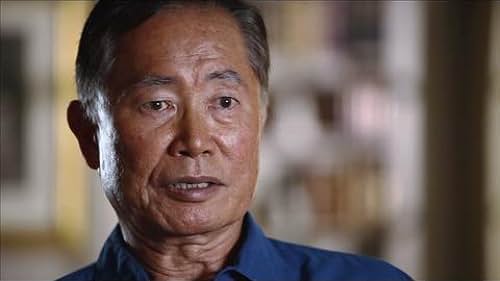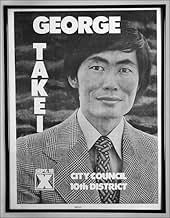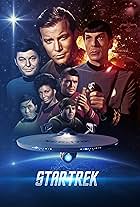George Takei (pronounced as in "toupee," as George points out) is best known in North American culture as Lt. Hikaru Sulu on the original "Star Trek" television series from the 1960s and the numerous later films. This documentary traces his life from his childhood years spent in a Japanese-American internment camp during WWII, through his struggles as a Japanese-American actor trying to get work, his signature role as Sulu, subsequent work in politics and with the Los Angeles transit company, and finally into his activism as a gay man fighting for marriage equality. Throughout the film, he comes across as optimistic, humble and friendly. It is clear that he depends on his long-term partner and now husband Brad, and that their relationship is central to both their lives, but he also talks candidly about being closeted for many decades, primarily so that he could continue to work. He regrets having taken stereotypical Japanese roles in a couple of Jerry Lewis films, but he is also proud of the fact that his characterization of Sulu encouraged younger Asian actors to keep trying to find acting work (many current Asian actors point to George as being their first role model in television and film).
The only sour note in the film comes from William Shatner, Captain Kirk himself, who insists several times that he and George had no personal relationship and even that Kirk and Sulu had no personal relationship in the TV show and films; and of course he claims to have received no invitation to George and Brad's wedding, which is not true. The biggest surprise to me was Howard Stern, a radio shock-jock who generally seems like just a super-annoying person but who talks with, and about, George with obvious affection.
As a document showcasing what Hollywood was like for non-white actors between the 1950s and modern times, there could have been a bit more information. But as a document describing the life, career and personal arc of an individual who has lived an interesting life in interesting times, this is stellar.


























